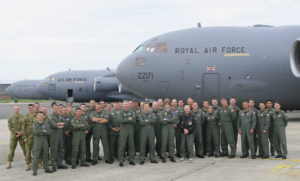Britain Leads NATO Troop Deployment In The Baltic
Following a number of high-profile maneuvers by the Russian Navy, Great Britain has increased its deployment of troops to the Baltic States as part of a greater campaign by NATO to constrain the Kremlin amidst growing fears of its power. Tensions between NATO forces and Russia have been on the rise ever since Russia annexed the Crimea, a Ukrainian province, in 2014.
As a result of this hostility, then-British Prime Minister David Cameron, at the NATO Summit in Warsaw in July, announced that the British government would deploy 650 soldiers to Estonia. This move did not stem Russian aggression. However, in mid-October, a Russian naval fleet on its way to Syria passed uncomfortably close to the British Isles.
Speaking about how close the Russian force, equipped with fighter-bombers, sailed to Britain, a Ministry of Defense spokesman said, “When these ships near our waters we will man-mark them every step of the way. We will be watching as part of our steadfast commitment to keep Britain safe.”

In the days following that incident, the British government decided to deploy 150 more soldiers to the Baltic region. In addition to these 800 troops, Britain will also dispatch Royal Air Force (RAF) Typhoon aircraft from RAF Coningsby to Romania for up to four months in 2017. These fighter planes are set to join the Baltic air policing mission to provide support of the Black Sea allies.
Speaking about Britain’s deployment of troops, British Defense Secretary Michael Fallon declared that “Backed by a rising defence budget, this deployment of air, land and sea forces shows that [Britain] will continue to play a leading role in NATO supporting the defence and security of [its] allies from the north to the south of the alliance.” The first deployments are expected to begin in May 2017. Britain, the U.S., Canada, and Germany are set to lead the campaign. Troops will be deployed primarily to areas of Poland, Estonia, Latvia, and Lithuania.
Britain’s deployment is also part of a more significant NATO commitment to station four new battalions, totaling around 4,000 personnel, on the alliance’s eastern flank.
Despite increasingly strained relations, NATO has remained adamant about its promise to avoid any sort of conflict with the Russians. At a recent NATO meeting in Brussels, NATO Secretary-General Jens Stoltenberg claimed that the alliance “does not want new Cold War.
